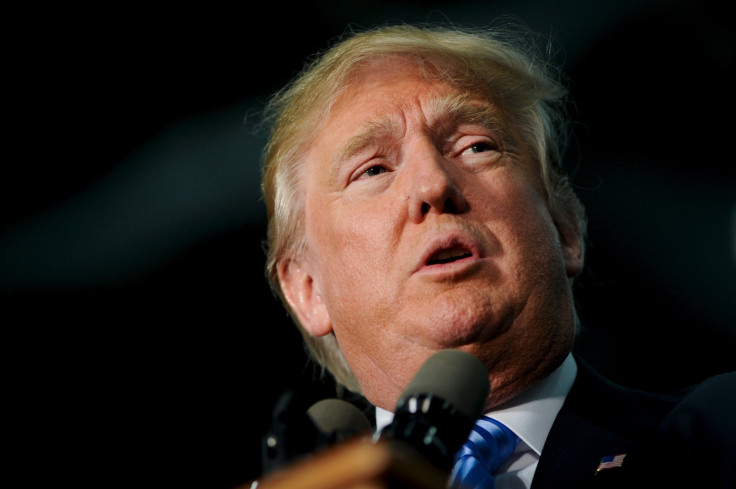Arab, Israeli Media Slam Donald Trump For His Comments Suggesting Muslim Immigration To The US Should Be Banned

BEIRUT -- U.S. presidential candidate Donald Trump has earned himself the labels of “racist” and “bigot” in the pages of Middle Eastern and Gulf news agencies after the Republican front-runner, speaking Monday at a rally in Charleston, South Carolina, said the U.S. should impose a total ban on Muslims entering the country. He said the U.S. should monitor all mosques in the country “while we figure out what the hell is going on.”
Trump said he wanted to understand the reasons for the recent terrorist attacks in San Bernardino, California; Beirut and Paris, and succeed in defeating the Islamic State group, also known as ISIS, whose supporters claimed responsibility for the attacks.
Gulf News, a Dubai-based English-language news outlet, reported that Trump’s solution would be to “bomb the hell” out of ISIS militants in Iraq and Syria, in an article published Tuesday titled “10 Things Trump Thinks About ...”
In a separate article published on Gulf News, senior associate editor Mick O’Reilly wrote:
“If you’re a bigot, redneck or white supremacist voter in the US right now, you gotta love Donald Trump. But it you’re a Muslim, an immigrant, a Mexican or black, be afraid — be very afraid.”
O'Reilly slammed Trump’s commentary as a "racist diatribe," saying that even former Vice President Dick Cheney was “disgusted ” after Cheney, speaking on a radio show Monday, said Trump’s plan to ban all Muslim immigration “goes against everything we stand for and believe in. Religious freedom has been a very important part of our history and where we came from.”
Dar al-Ifta, Egypt’s official religious body, echoed Cheney’s statement on religious freedom in the U.S. The organization issued a statement saying Trump’s commentary was “totally erroneous” and that “such hostile attitudes towards Islam and Muslims will increase tensions within the American society of which Muslims represent around 8 million peaceful and loyal American citizens.”
“It is unfair to punish all Muslims because of a group of extremists whose criminal actions are repudiated by Islam,” the statement said.
Most Middle Eastern media did not offer any comment on Trump’s remarks, choosing to focus instead on the conflicts in Yemen, Syria, Libya, Iraq and other homegrown terrorism. But, in an editorial, left-leaning Israeli newspaper Haaretz claimed that in Trump’s attempts to “figure out” what to do about the rise of ISIS, he unintentionally helped the terrorist group. A column on the news site said Trump’s remarks “must have delighted the Caliph, [ISIS leader] Abu Bakr al-Baghdadi.”
The White House rebuffed Trump’s statement and deputy national security adviser Ben Rhodes said the comments were “totally contrary to our values as Americans.”
© Copyright IBTimes 2025. All rights reserved.






















